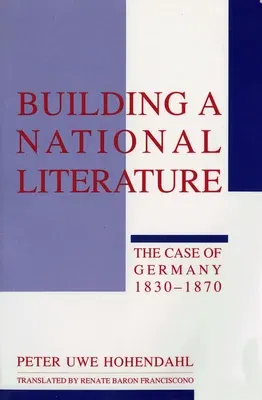Peter Uwe Hohendahl
(Author)Building a National LiteratureHardcover, 25 August 1989

Qty
1
Turbo
Ships in 2 - 3 days
In Stock
Free Delivery
Cash on Delivery
15 Days
Free Returns
Secure Checkout

Reading Age
Ages: 18
Grade Levels
13
Print Length
376 pages
Language
English
Publisher
Cornell University Press
Date Published
25 Aug 1989
ISBN-10
0801418623
ISBN-13
9780801418624
Description
Product Details
Audience:
Ages: 18
Author:
Book Format:
Hardcover
Country of Origin:
US
Date Published:
25 August 1989
Dimensions:
22.86 x
15.24 x
2.54 cm
Educational Level:
Grade Levels: 13
ISBN-10:
0801418623
ISBN-13:
9780801418624
Language:
English
Location:
Ithaca
Pages:
376
Publisher:
Weight:
721.21 gm